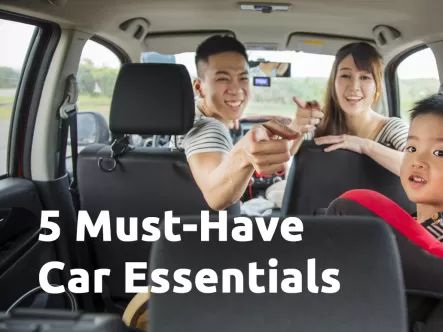Street smarts to keep you safe when you study abroad

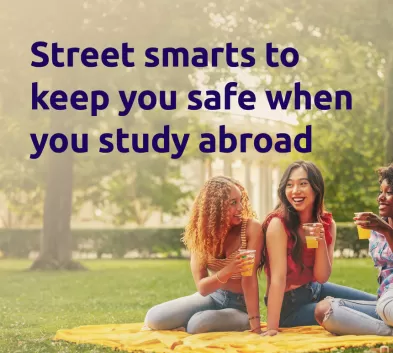
4-minute read
Excited about your new chapter — studying abroad? Here’s how you can stay safe while you study hard and play hard.
As Singapore is sheltered from natural disasters and the crime rate is low, we may tend to be relaxed about safety issues. Studying and living in another country is wonderful, with a different culture and lifestyle, but the level of security could be different from what we are used to. To enjoy your overseas study experience thoroughly, it helps to be aware and be prepared with some street smarts.
1. Deft theft — blink and you might miss the quick steal
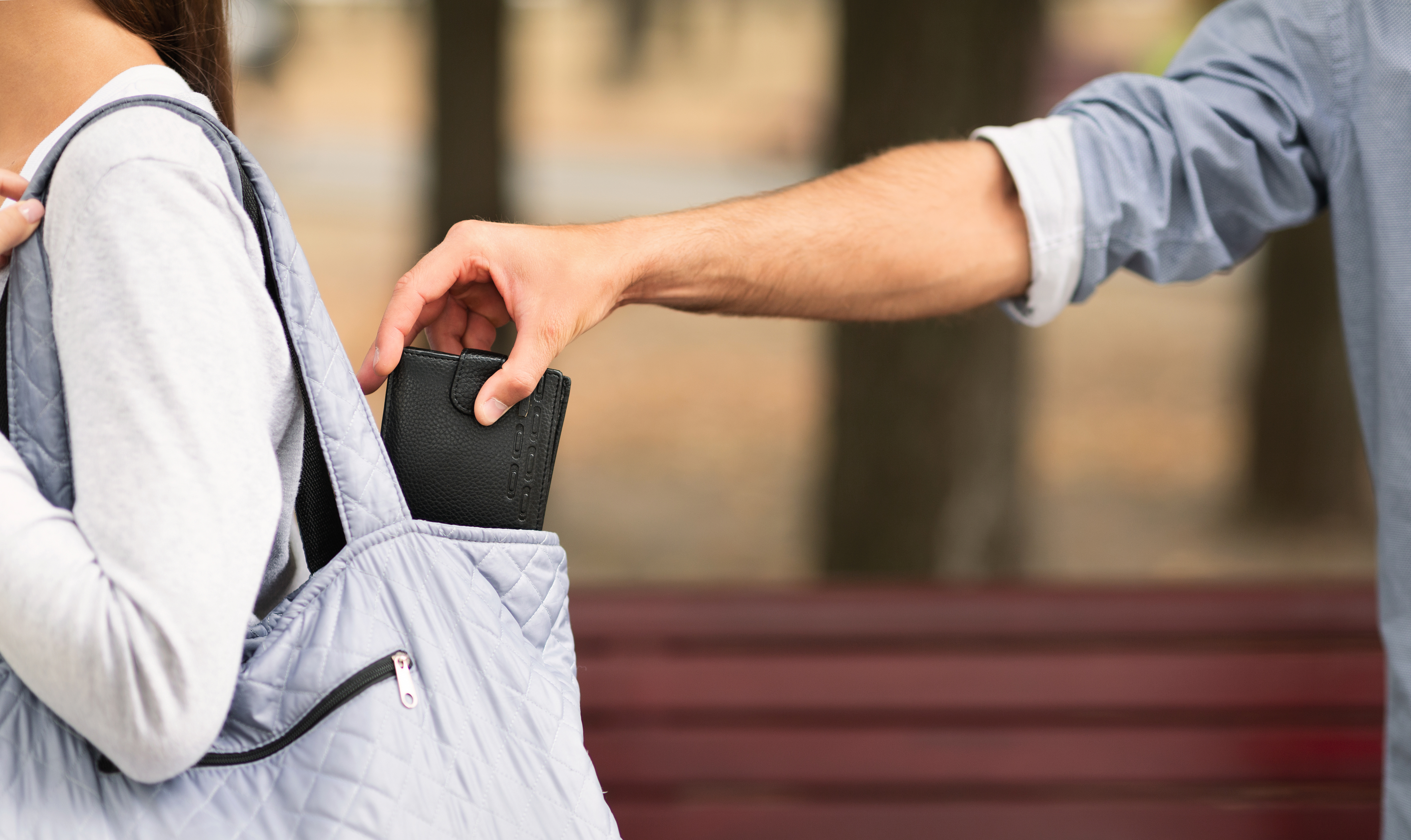
Pickpocket, snatch thief, smash and grab thieves… be aware of their techniques so you can avoid a situation where you could be a victim.
Do you walk with your bag hanging from your shoulder? Do you leave your mobile phone on the cafe table while you chat with your friends? Do you drive with your bag on the passenger seat? Sure! We’re used to being relaxed about our belongings, but when overseas, you have to make some adjustments.
With a little feint and misdirection, light fingers can lift items from your bag or your table. What’s more, these thieves often work in teams so it’s difficult to catch them. While one person distracts you — perhaps asking for directions — another lifts your wallet or swipes your mobile phone. Before you realise that something is missing, the thief has already passed your belongings to other team members, who might be whizzing by on a skateboard.
Be extra careful in crowded places, such as flea markets, trains, pedestrian crossings. Keep your belongings securely tucked away. Don’t be flashy with cash or jewellery. Be alert to your surroundings — those noise-cancelling headphones may give you the best audio experience, but could impede your other senses when you’re out and about.
If you’re driving, don’t leave your bag on the passenger seat, as it’s visible and at the right height for a smash and grab, most likely by someone zooming by on a motorbike. Place your bag on the car floor to keep it safe.
What if, despite all your best efforts, you really lose your things? Stay calm and get to a safe place. Call your bank to cancel your credit and debit cards. Make the necessary reports. It’s best to keep a hard copy of your personal documents and contacts’ list so you can refer to them when needed.
2. Stay safe in crowded places
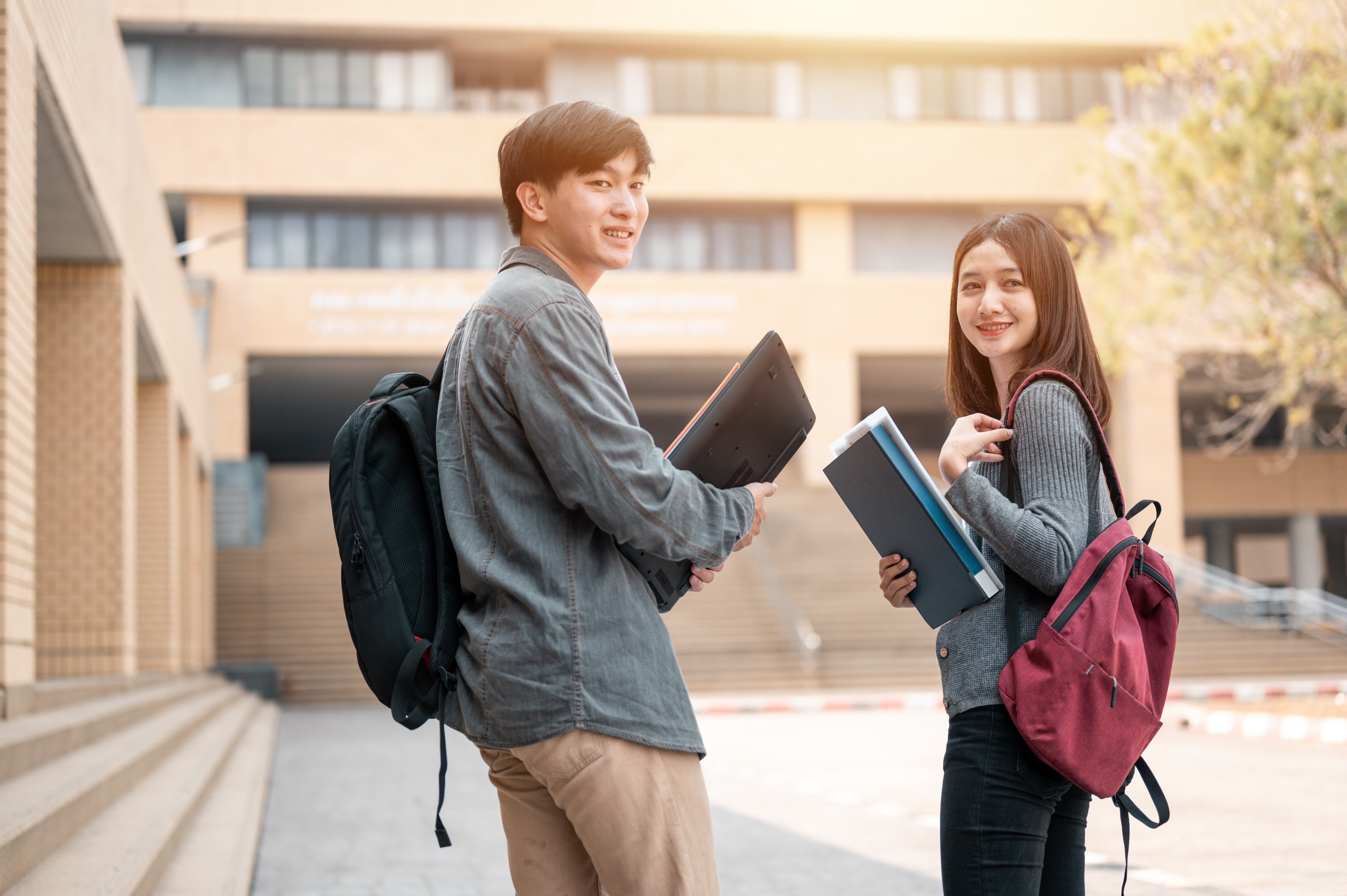
Studying overseas also gives you the opportunities to enjoy different experiences, such as pop concerts, countdown parties, sporting events.
What if you had a chance to watch the classic Man Utd vs Liverpool game, live? Things can get boisterous, so take precautions, e.g. be aware of the alternate exits, routes in and out of the stadium, keep your friends or family informed about your plans.
Before the event, do some research to see if the organisers are serious about providing a safe environment for fans. Find out if there are, for instance, safety policies such as no bags, no alcohol, security presence including K9 dog patrols. Look up the venue’s website, or check out local news reports.
These precautions apply to other crowded places, such as nightspots and event spaces for traditions, such as New Year Countdown parties at New York’s Times Square.
After the tragedy of the Itaewon stampede in Seoul, there is more awareness of how to react in a similar situation. Check out some tips on what to do if you’re stuck in a crowd crush — remember to protect your head and neck, create some breathing space around your face, and don’t fight the flow of the crowd. If you get injured, find medical help as soon as possible.
3. Practise safe socialising
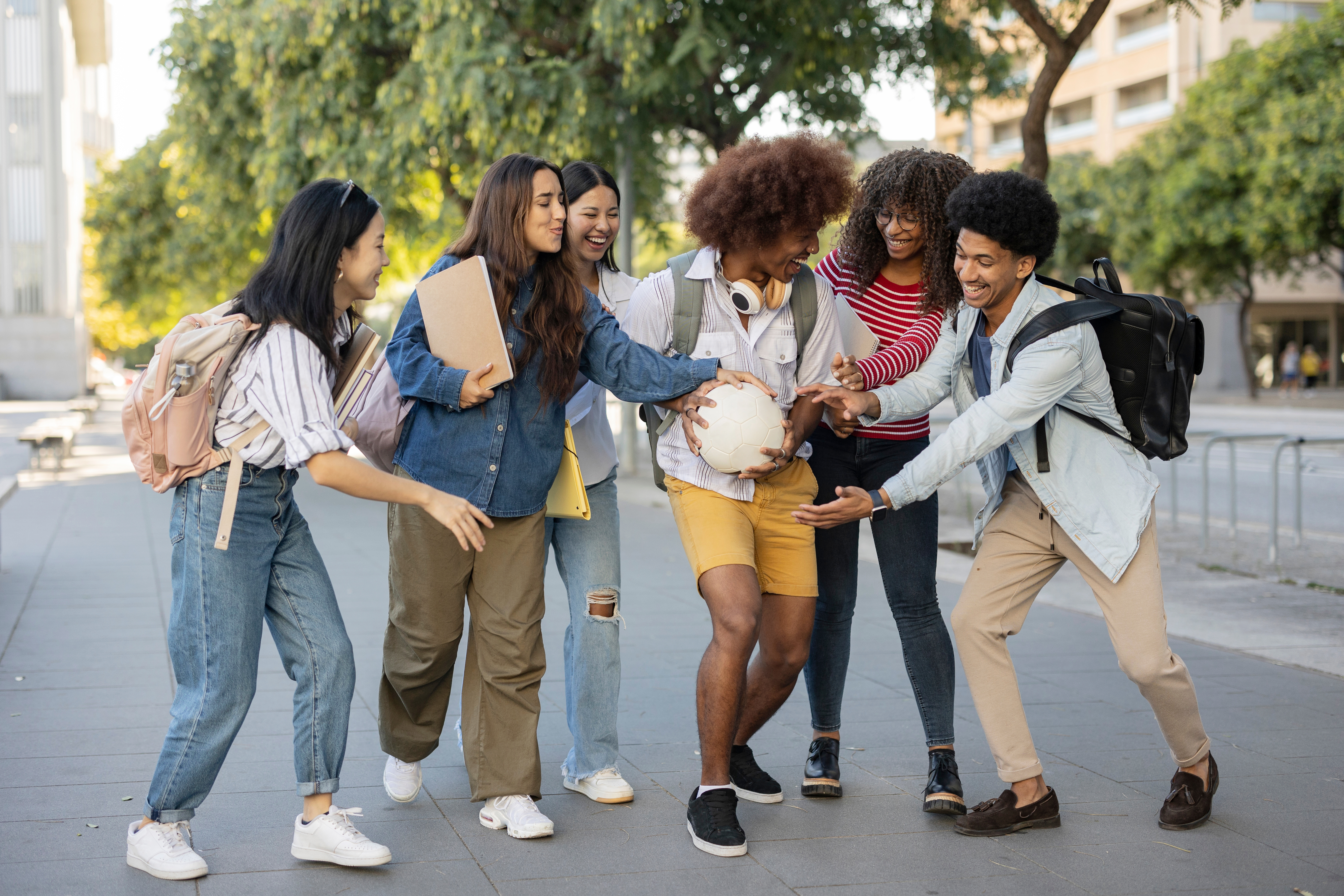
Making new friends and enjoying an active social life are part and parcel of studying away from home. Don’t feel pressured to conform, if certain activities make you uncomfortable. Going for a night out on the town? It’s safer if you move about with a group of trusted friends.
Although underground drinking places sound exciting, bootleg drinks could contain dubious substances or be contaminated. Drugs or bugs can cause long term health problems. It’s safer — and more pleasant! — to drink in licensed outlets. As for your drink, don’t leave it unattended as it can be spiked by someone with malicious intentions. Ask for your drink to be served in a clear glass, so if the appearance of the liquid changes (for instance, to a different colour or becomes cloudy), it could have been spiked. You can check with your university for details on keeping safe on campus or in the varsity town, and supplement your reading with these articles by Boston University and University of Liverpool.
For moving about, don’t accept lifts from strangers, even though it might be a cold winter night. Take a licensed taxi, even though it costs a bit more. Better safe than sorry!
4. Develop your savvy sense about scams

Financial cheats are getting more ingenious, preying on students’ vulnerability and ignorance about local practices. Learn as much as you can about the tactics used and you can then take steps to protect yourself.
For instance, when you know that a legitimate London Metropolitan Police Services officer will never demand an immediate cash payment, it’s easy to tell that the “undercover police officer” demanding payment of a fine is an imposter.
Although the Nigerian prince scam is well-known, there are many other cons out there. Be careful about lotteries that ask for your personal details, schemes promising easy money, websites offering work permits, online dating and social networking services. Use these tips for the UK as a start point to learning more about scams.
5. Protect yourself in a natural disaster
No matter how careful you are — safe socialising, keeping copies of your documents etc, you can’t prevent natural disasters.
The earth is not static. Tectonic plates are shifting, giving rise to earthquakes and volcano eruptions. The National Earthquake Information Center (NEIC) in the US records about 20,000 earthquakes around the globe each year, so it’s useful to know what to do before, during and after an earthquake. These tips compiled by Japan Times range from keeping an emergency kit handy, to lowering your centre of gravity and to conserving your oxygen.
If you want to look up other situations such as heavy rain, heavy snow, tornadoes, check out this handy manual by the Tokyo Metropolitan Government called “Disaster Preparedness Tokyo” (Tokyo Bousai, “bousai” means “disaster preparedness” in Japanese).
Of course, it’s best to get information that’s relevant in the local context — for example, the telephone numbers of your town’s emergency services, location of relief centres and so on.
6. Keeping safe with insurance: accident, hospitalisation, medical expenses
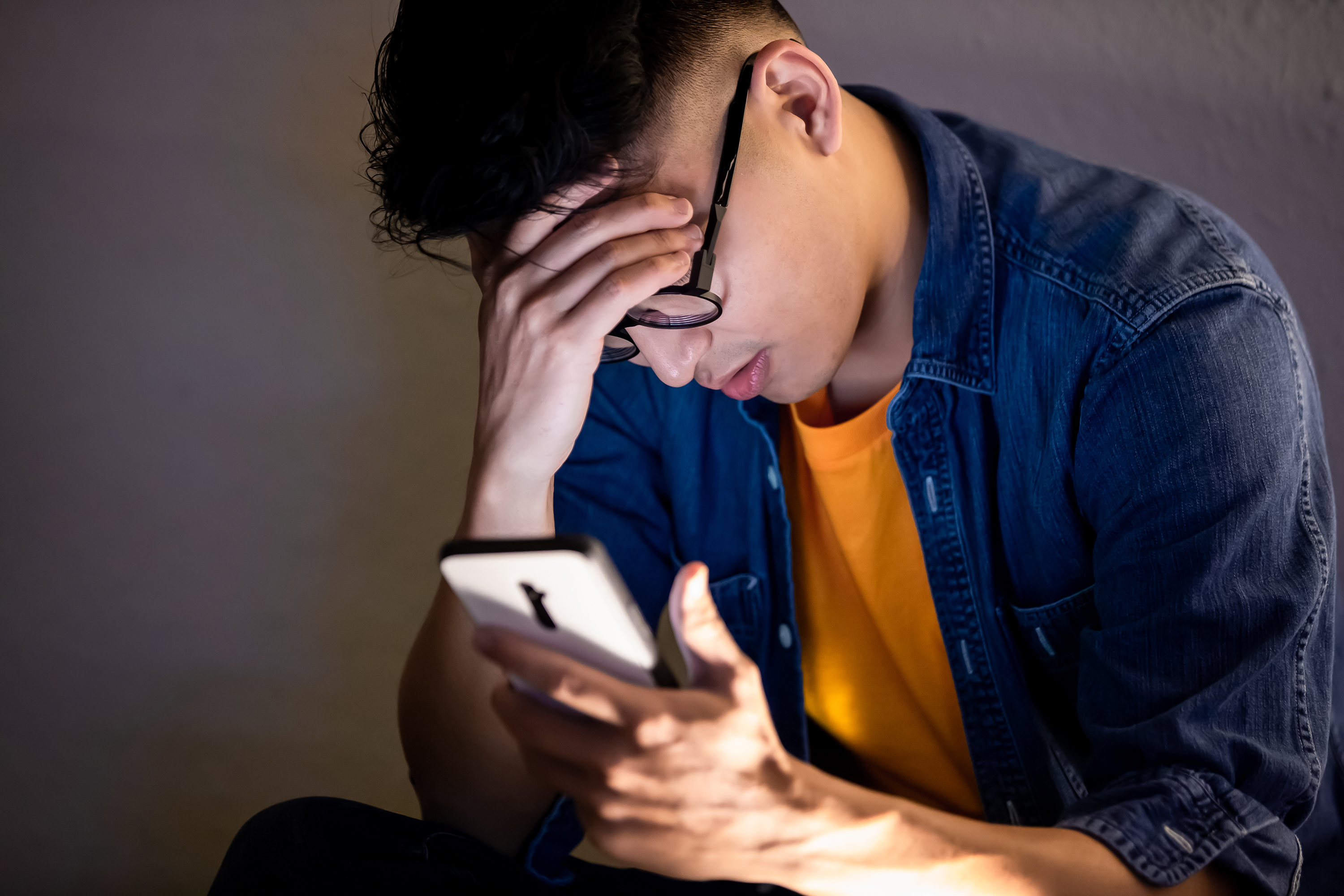
If, despite all the precautions and measures, you find yourself in an emergency situation, it helps a great deal if you are covered by insurance. If you are hurt and need medical attention including hospitalisation overseas, or if you need medical evacuation to return to Singapore, or if your belongings are stolen, you’ll be more assured if you have an overseas study insurance like MSIG Global Study Insurance. It offers wide coverage of accidents and medical expenses that you might incur while studying abroad. The plan even covers your pre-paid course fees should your studies be interrupted by illness or injury.
If an accident or mishap happens, take a deep breath, stay calm and collect the incident details, and submit the report to us for claims. We’re here to ensure that your overseas study experience is as worry-free as possible.
► How do I make a claim?
If you are overseas and require any emergency assistance, you can call our 24-hour MSIG Assist at +65 6323 8288. If you wish to file a claim on your insurance, you must do so within 30 days of any event giving rise or likely to give rise to a claim. You can download the claim form or submit your claims here.
From time to time, we have exclusive promotions on our insurance plans. Click here to view the latest deals. Policy terms and conditions apply.


